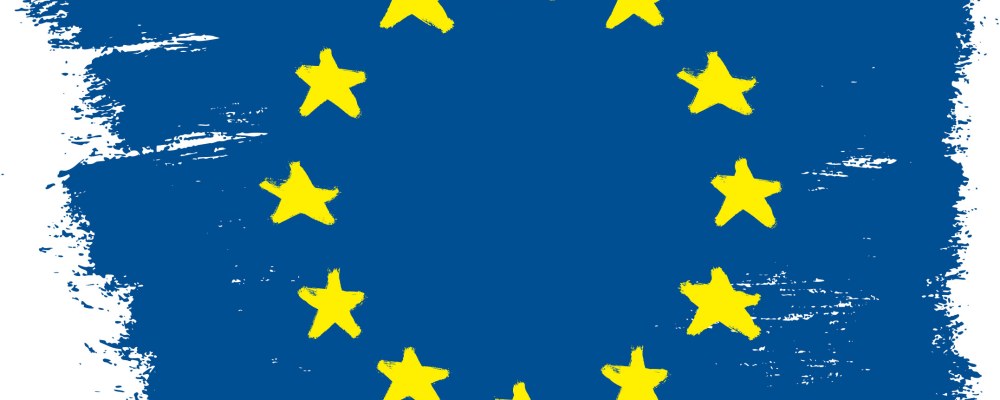
The voter turnout in Finland in the 2019 European elections was 40.8 per cent. What this means in practice is that everyone who voted was able to exercise power equivalent to that of more than two Finns.
By exercising their right to vote, TEK members have an excellent opportunity once again to help make sure that TEK’s goals for the European elections will be achieved.
All our goals are listed on this article. TEK’s goals for the European elections have been divided under three themes: Competitive EU, Digitalisation and Sustainable Development. In addition to these, TEK supports all of Akava’s objectives for the European elections.

“The top priority for TEK is that the European Union is globally competitive and, through this, that the competitiveness of the member states will grow stronger,” says Director of Public Affairs Juhani Nokela from TEK.
“TEK also wants to support an open EU where new businesses can challenge old ones with new ideas and technologies. What this means is, for example, that the solutions for zero-carbon production are not bound to any single existing technology, but the challenge can be tackled in a variety of ways. Regulation plays a major role in this.”
TEK’s goals for the European elections
Competitive EU
Innovation capacities are the most important resource in European industry and the key to growth in the green transition and digitalisation. The monetary contributions made by the EU to promoting competitiveness should primarily be aimed at research and development using the Horizon programme and at staff mobility through the Marie Curie and Erasmus+ programmes. The competitiveness of the EU should be built on a high level of expertise, major R&D efforts, a smooth permit process and a predictable and stable operating environment. Education policy should continue to be the responsibility of each member state.
EU regulation should facilitate the market entry and growth of companies. The competitiveness of European industry should be supported by making the operating environment predictable and by curbing overregulation and overlapping steering mechanisms. The energy efficiency target is one example of unnecessary, overlapping regulation, because emissions trading drives this same target more efficiently. The EU should make a determined effort to reduce harmful regulatory cross-impacts.
In geopolitically uncertain times, the EU should focus on resilience. The EU should pursue strategic autonomy. In special cases, this can also lead to subsidies for European industrial production in situations where the global competition is distorted due to the subsidy policy practised by third countries. Any subsidies for industrial production should be granted under EU’s new common instrument to the best candidates following a competition. The lax, member state-driven industrial subsidy policy that has been practised since the COVID-19 pandemic should be terminated as it distorts the internal market of the EU. Europe should build and maintain sufficient technological capacity and expertise in security solutions. A credible defence requires contributions aimed at various forms of readiness, such as cybersecurity competencies. The investments in the development of security solutions should not be made at the expense of other research funding.
In an era of polycrisis, the EU must focus even more effort on security of supply, self-sufficiency and security. These things also have a significant effect on the investment environment of the EU and its member states, which is a key issue when companies make decisions on the geographical location of major investments.
Digitalisation
The global position of the EU in the digital transformation must be strengthened. We need more investments in quantum technology, Europe’s own chip production and the development, application and adoption of AI. The Chips Act should be ambitiously seen through to the end so that the development efforts and production are aimed at places with the highest level of expertise.
The EU must develop the digital market. A fair data economy market requires a genuinely European digital market in terms of permits and copyrights, reining in the power of digital monopolies and removing the obstacles to growth and market entry.
Sustainable Development
The EU must continue its work as a global pioneer in climate and nature policy. The EU should set an emissions target for 2040 that is in line with the recommendation of the EU Advisory Board on Climate Change. The emissions trading mechanism is a highly cost-effective and valued tool that should also be applied in agriculture. A technology-neutral market should be created for carbon sequestration to ensure the rapid scaling of the required solutions.
In the future, the power system will be increasingly based on variable renewable energy production. However, basic production will still remain valuable. Nuclear power should be treated equally with other climate- and nature-friendly energy solutions. The EU must promote common regulation that enables an internal market for serially produced SMRs that is as uniform as possible.
The EU must expedite actions to halt biodiversity loss and move towards no net loss, i.e. a state in which human activity on the whole does not harm biodiversity. The most important tool for halting biodiversity loss is the sustainable use of natural resources. In order to promote this, the EU must tighten the product and producer liability policy in the circular economy. The circular economy requires new types of expertise and innovations. The EU should focus significant research efforts on circular economy, with an emphasis on critical circular economy sectors, such as technology.